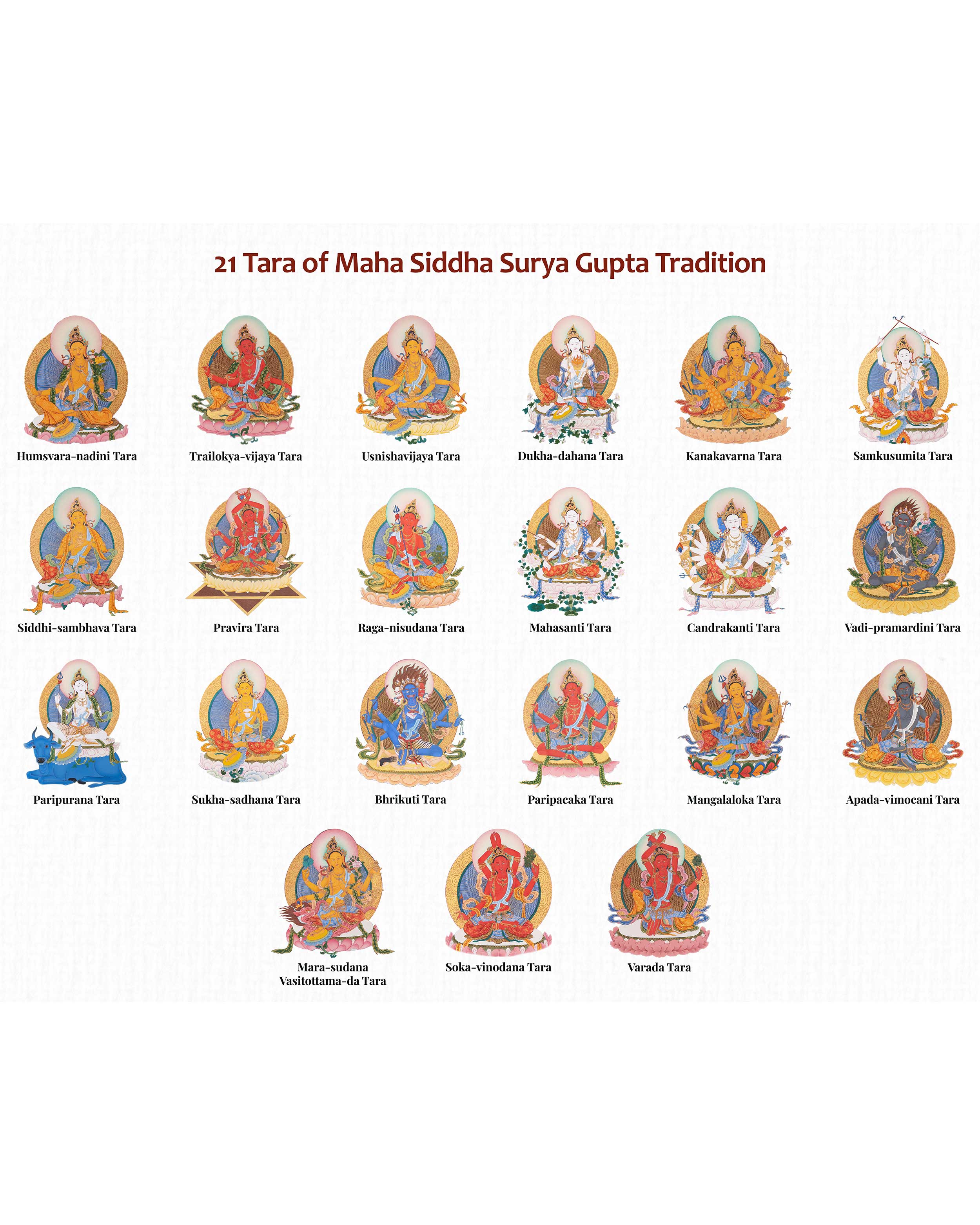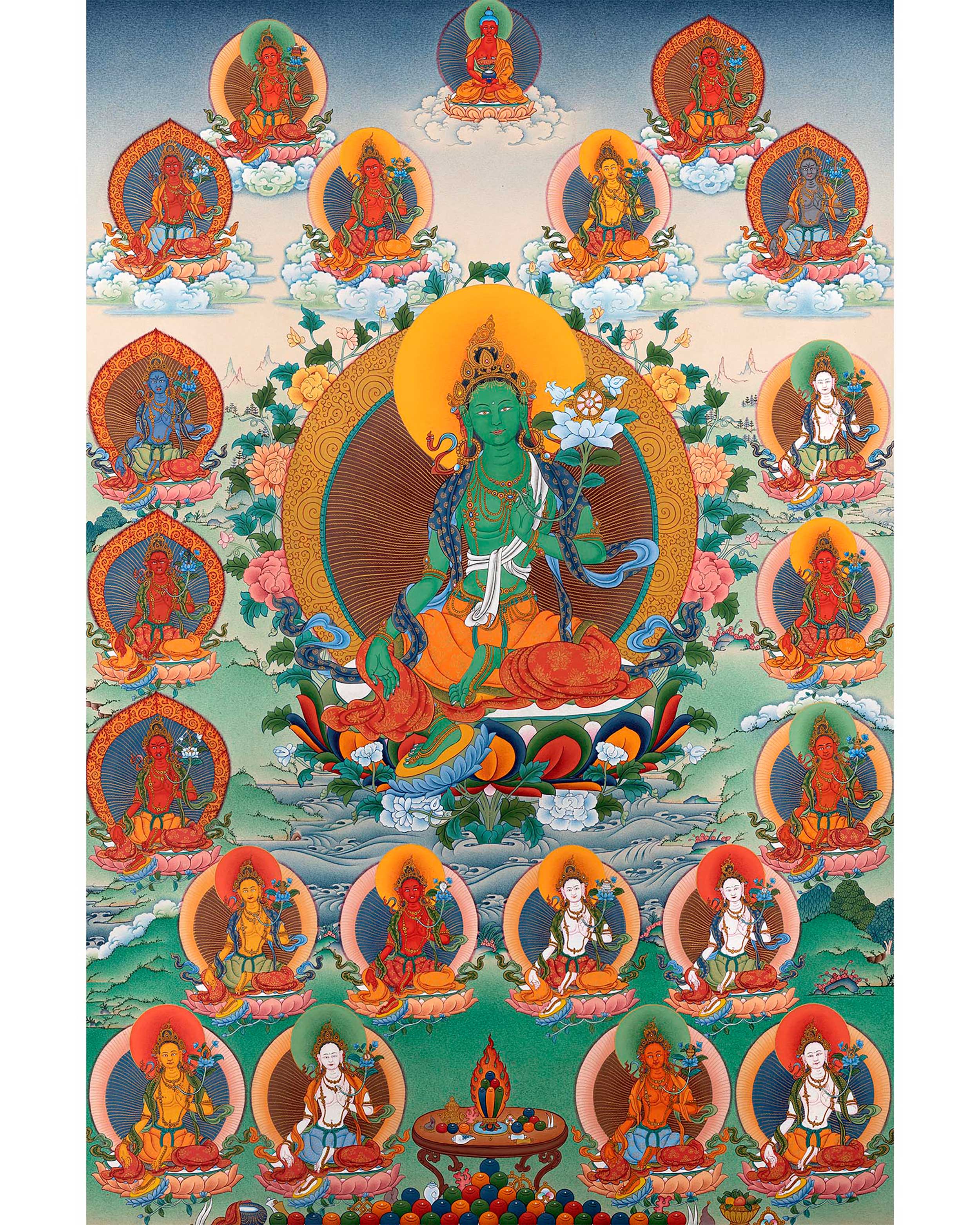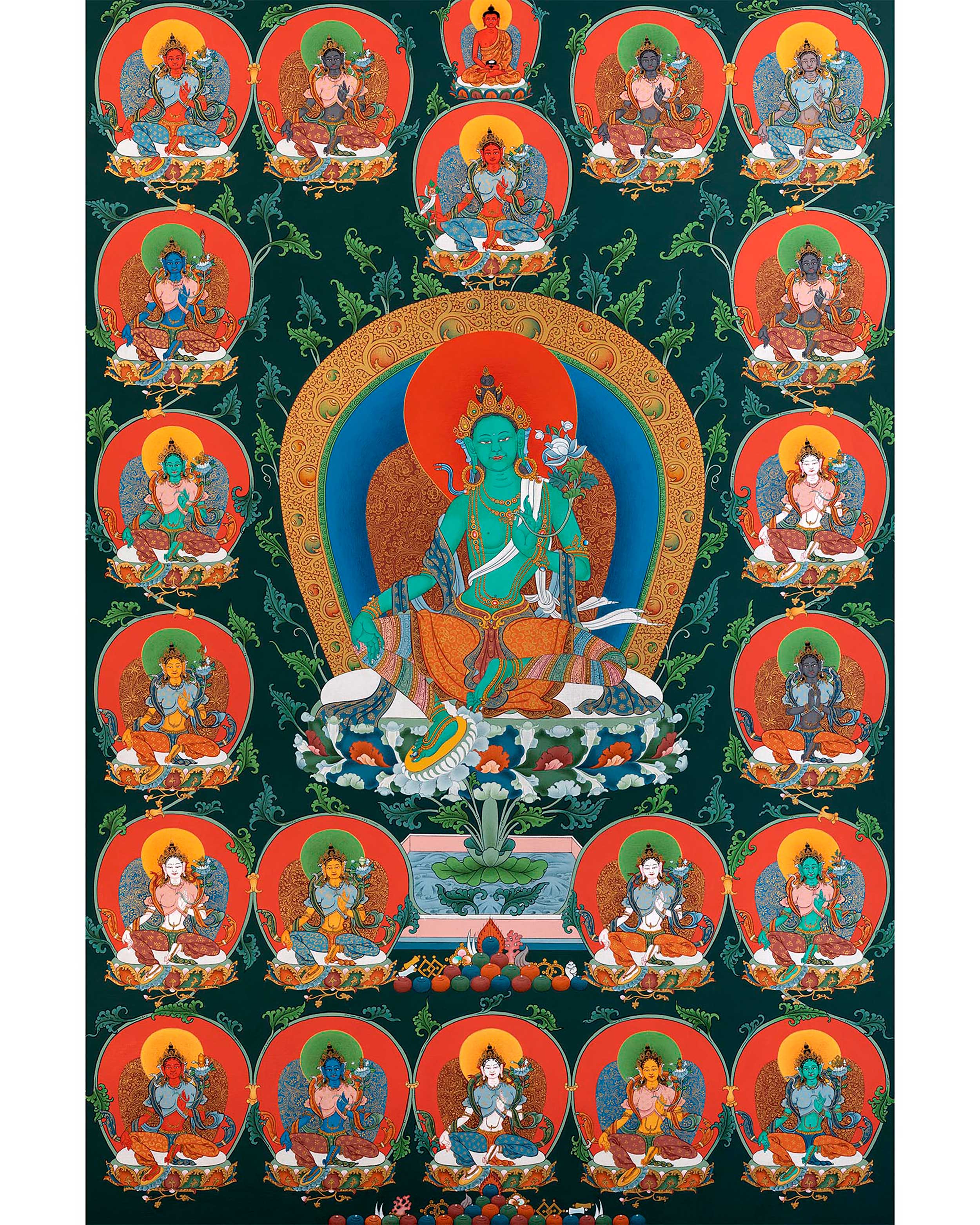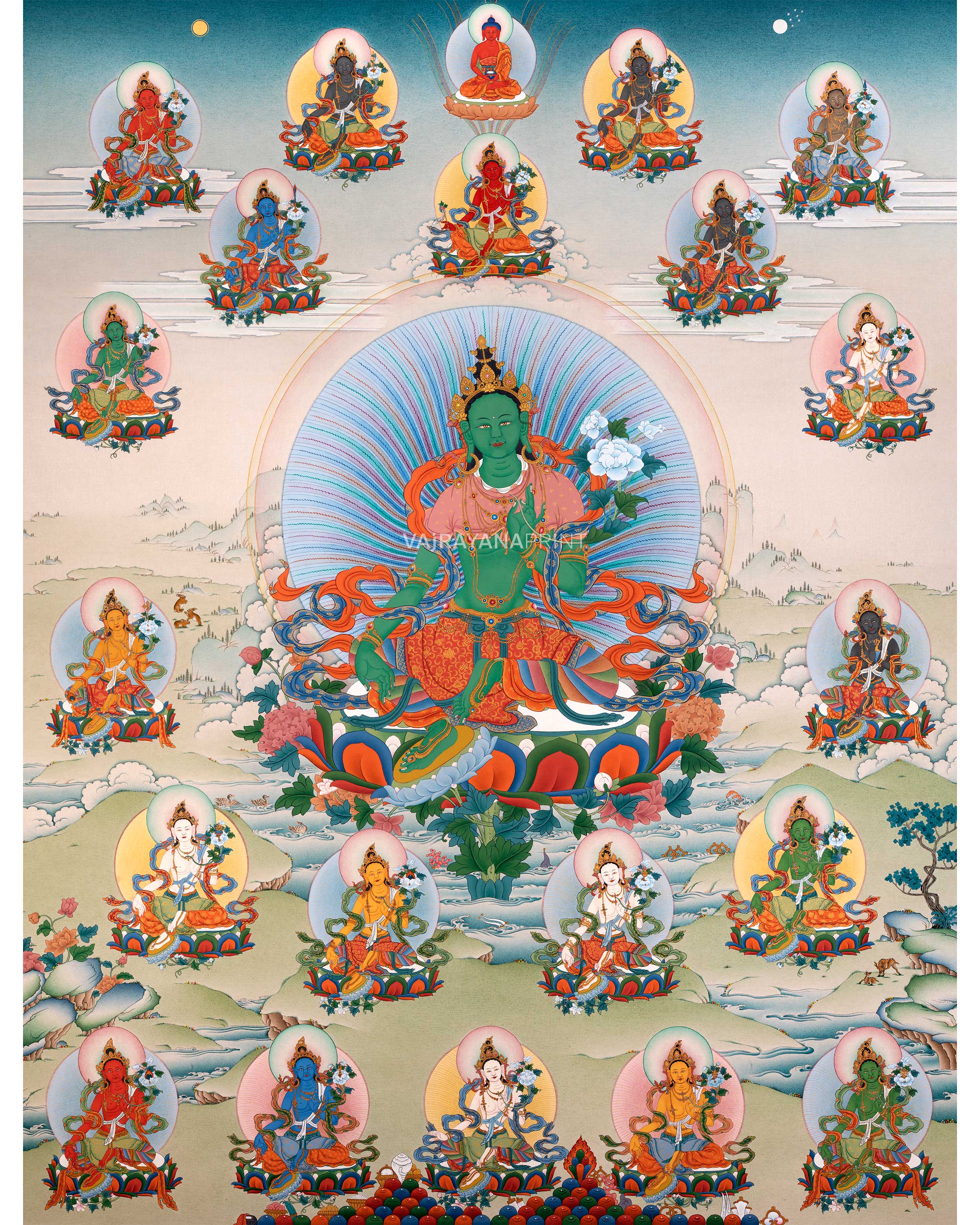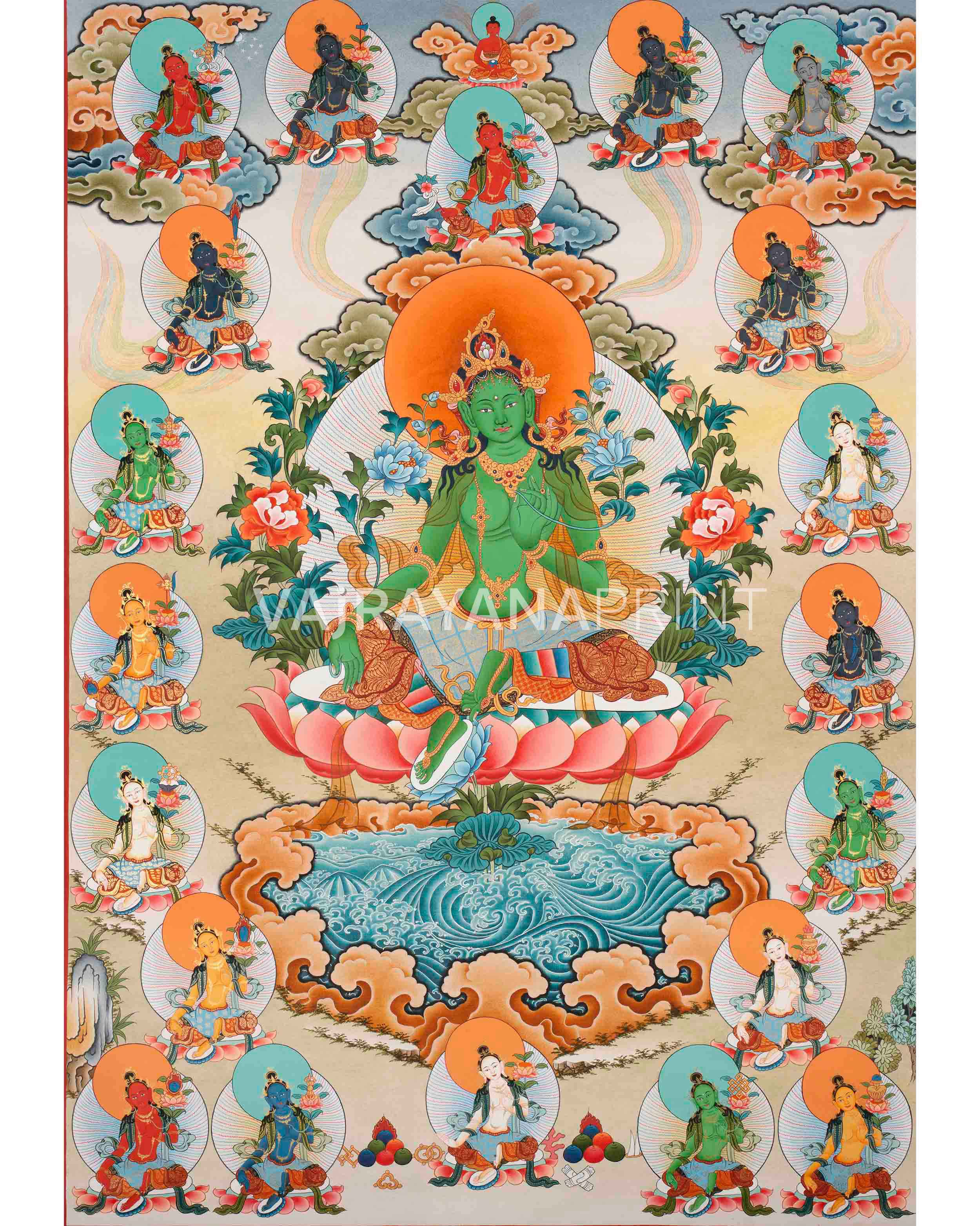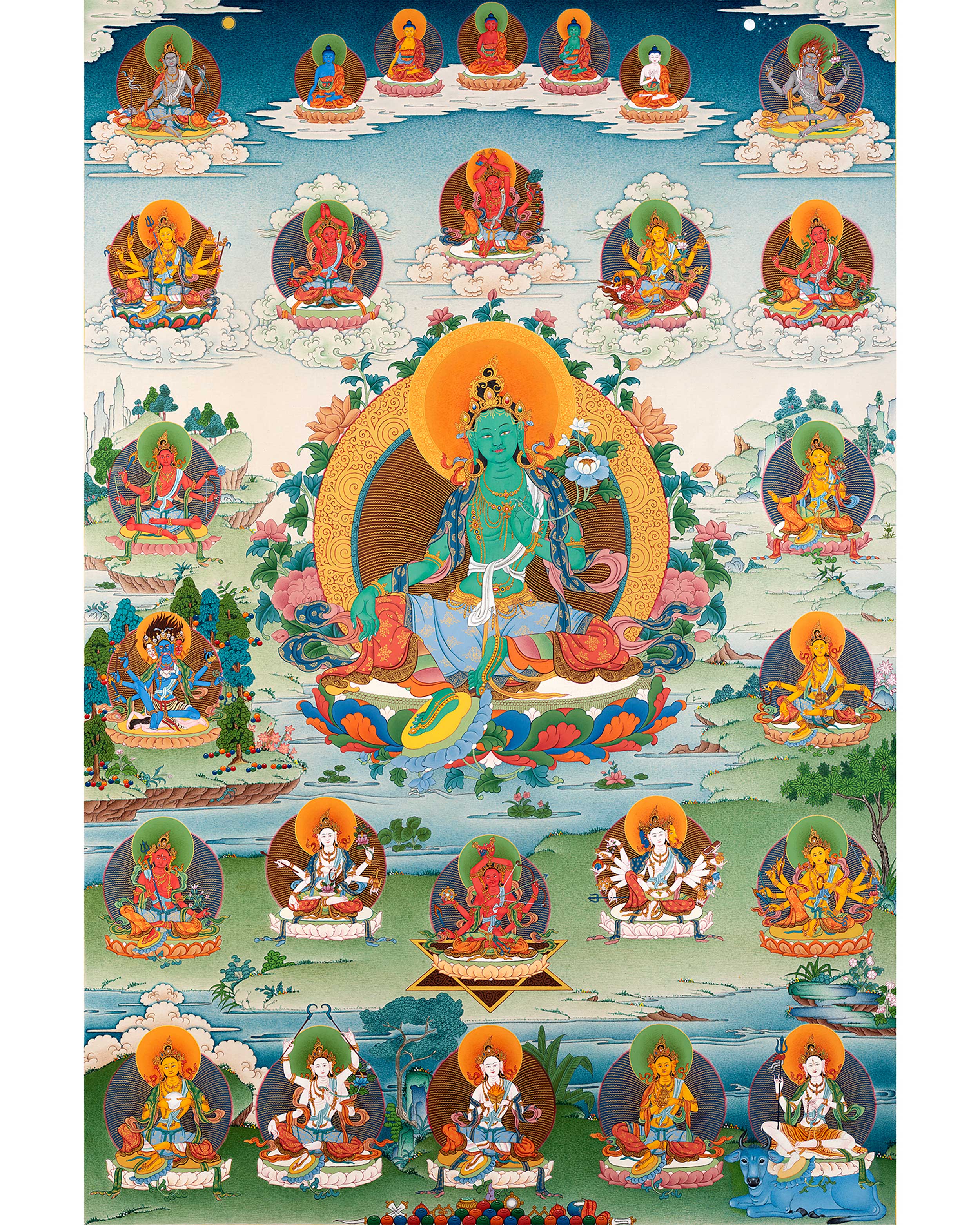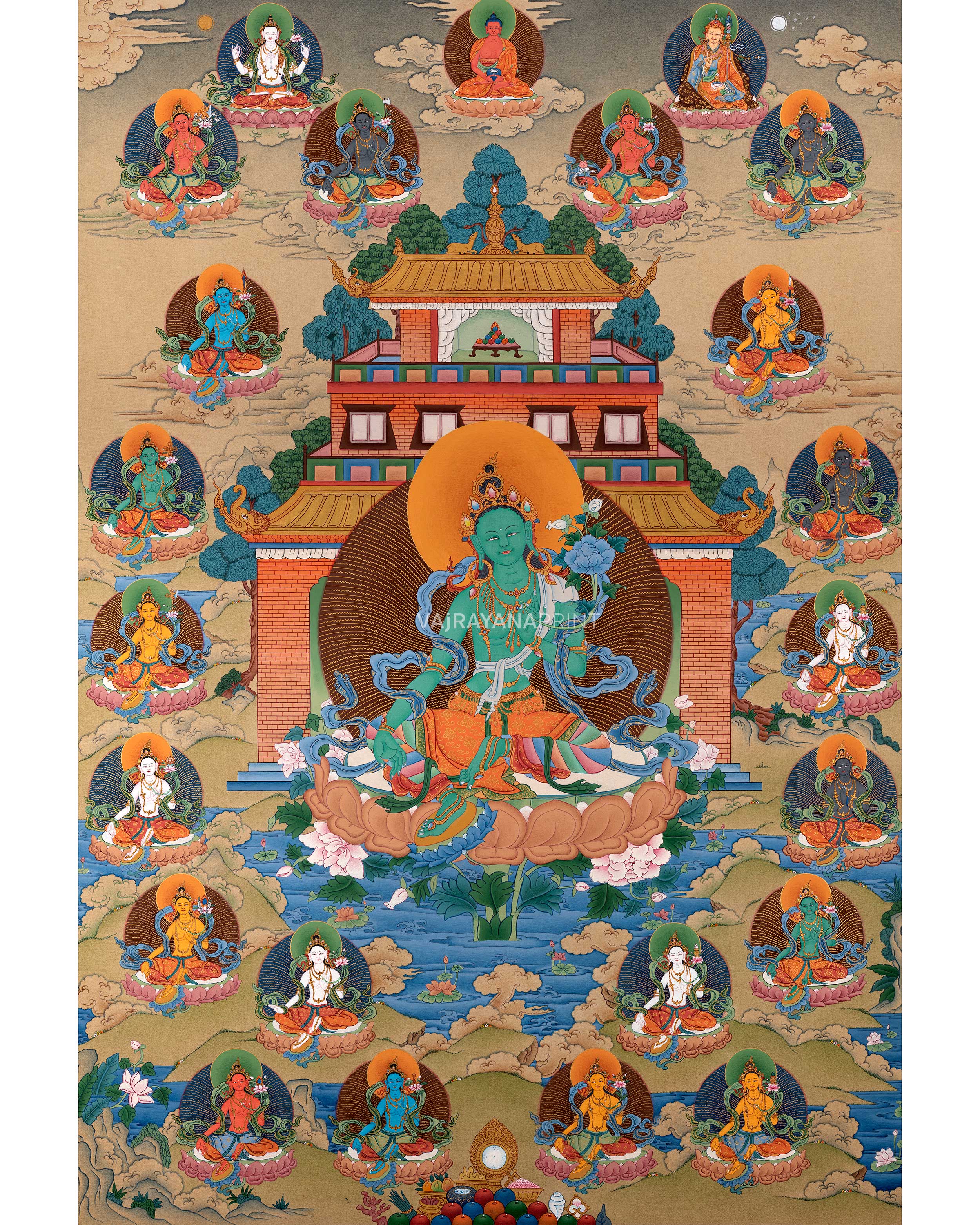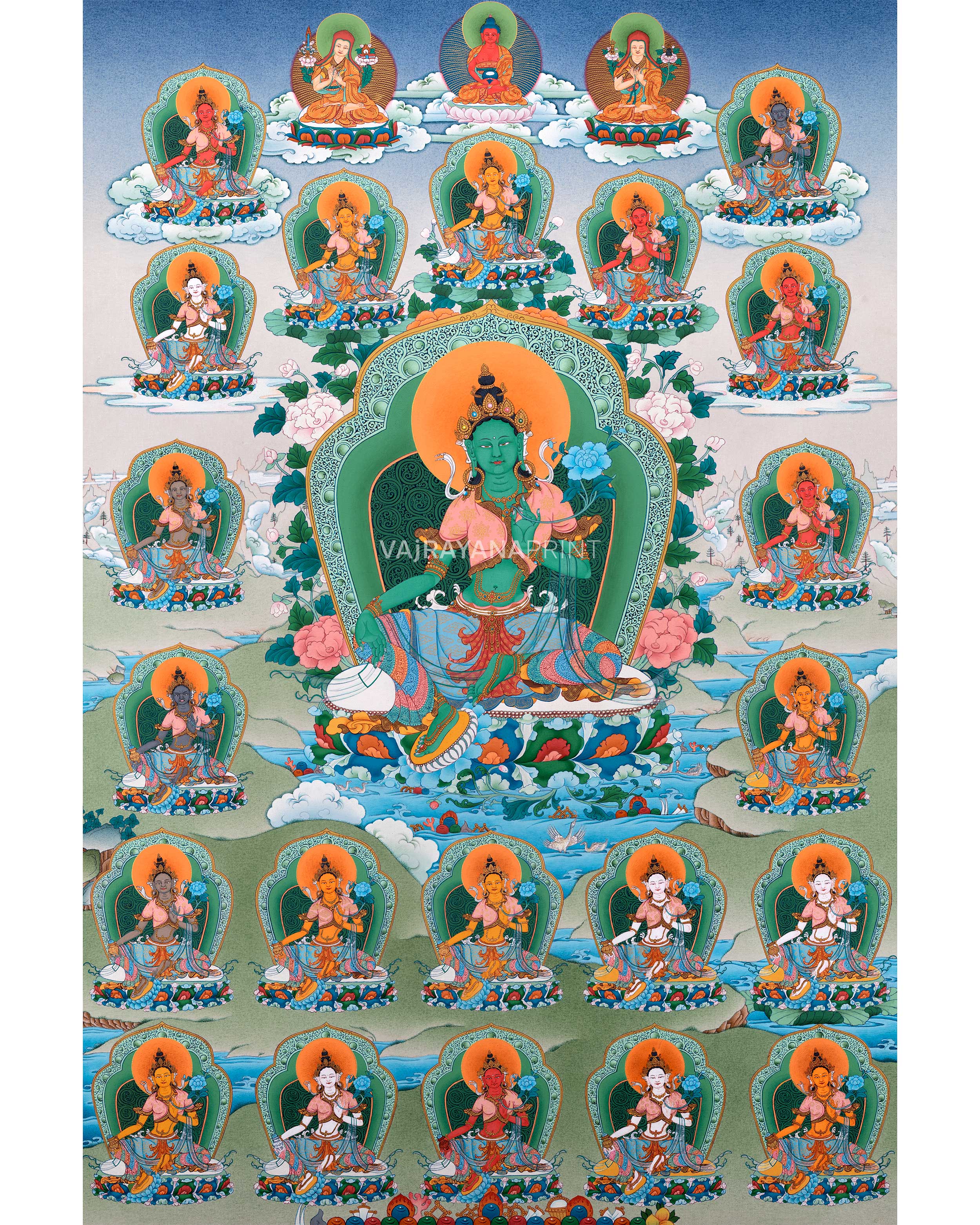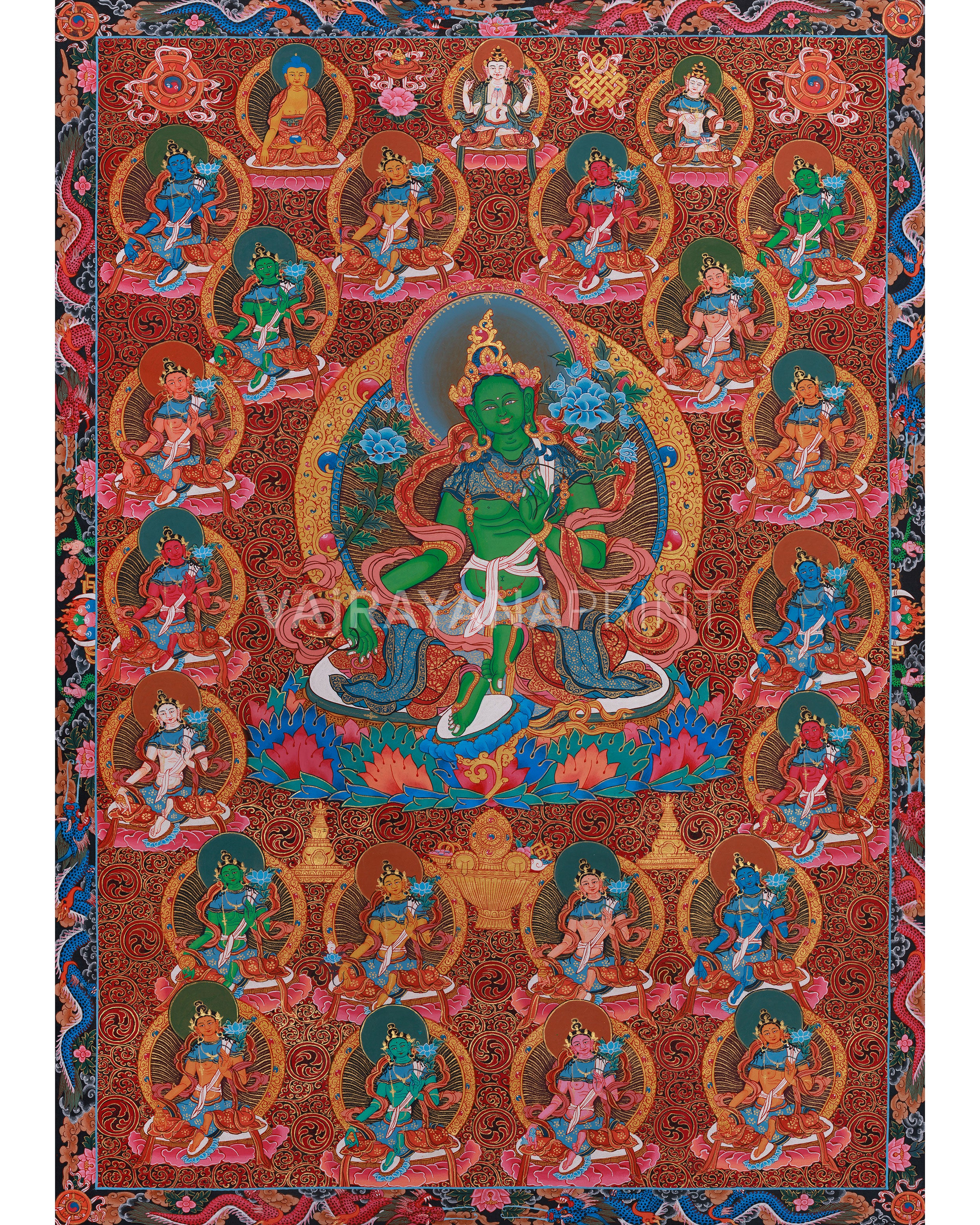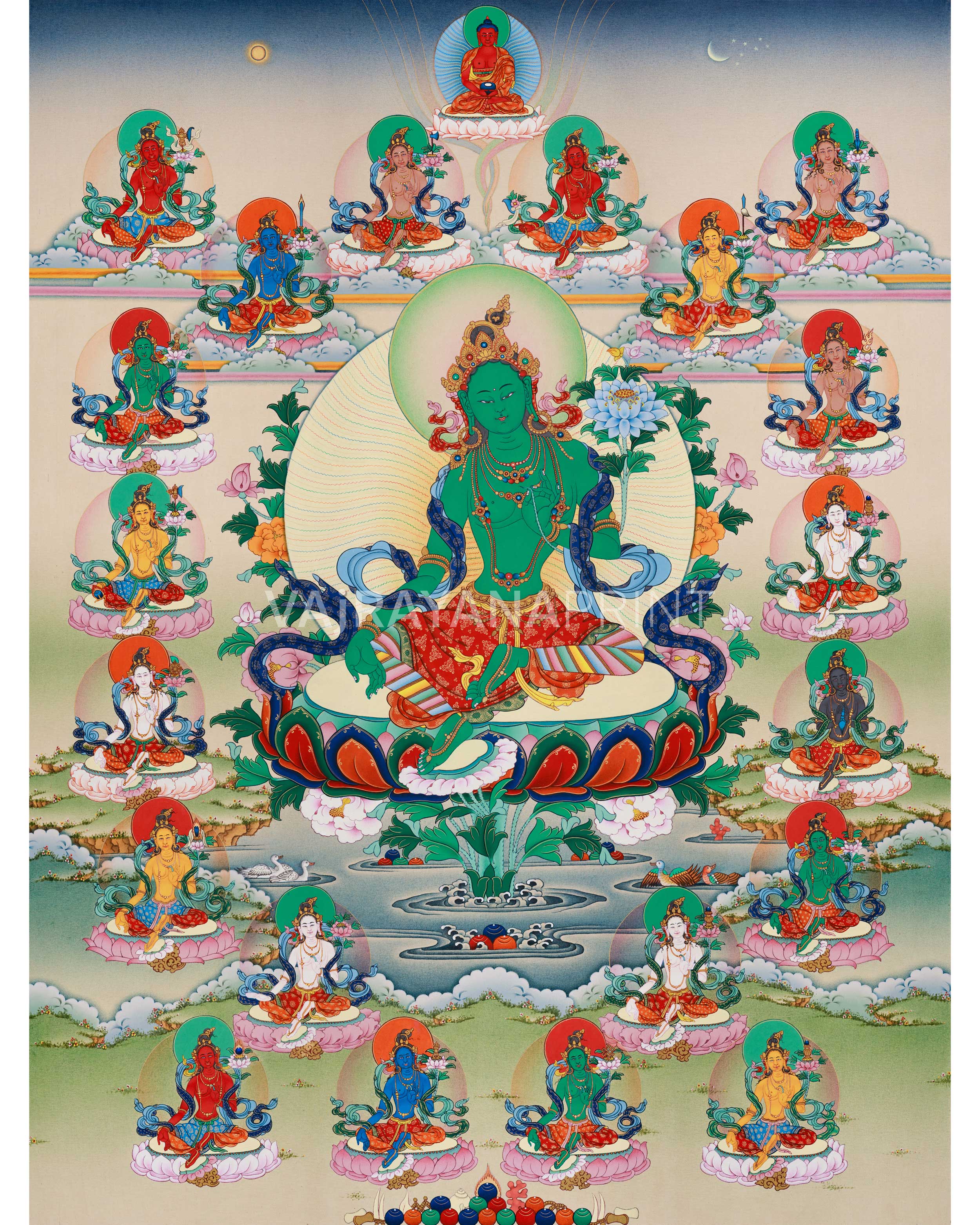Tara Prints
12 products
Showing 1 - 12 of 12 products
Our Tara thangkas are peaceful and they bring about an auspicious and calming aura with them. They come from the ‘Prayers to the twenty-one Taras’ and are prayed to for health, good fortune, prosperity, protection from bad forces, and whatnot. White Tara and Green Tara are some of the most popular Taras depicted independently.
Tara: The Mother of Liberation and Compassion
Known as the "Mother of all Buddhas," Tara is central to Tibetan and Mahayana Buddhism. Her name, derived from Sanskrit, means "to cross," symbolizing her role as a guide to help practitioners cross the ocean of samsara, the cycle of birth, death, and rebirth.
Tara, representing the feminine aspect of Buddhism, is revered as a Bodhisattva and sometimes as a fully enlightened Buddha. Her origins can be traced to ancient folktales, one of which narrates her emergence from a tear of the Bodhisattva Avalokiteshvara, signifying her deep connection to compassion.
Attributes and Iconography
Tara takes on various forms, with White and Green Tara being the most widely recognized. Green Tara embodies active compassion, depicted with one foot extended in a half-open lotus posture, poised to act. She holds a utpala flower a blue lotus, and makes a protective mudra gesture with her hand.
White Tara, associated with healing and longevity, is portrayed sitting in a lotus position with eyes on her forehead, palms, and soles, symbolizing her vigilance and omniscience. She makes a protective gesture while cradling a blossoming white lotus. Both forms of Tara have a third eye on their foreheads, representing wisdom.
Associated Stories and Beliefs
Numerous stories underscore Tara's compassion and commitment to aiding sentient beings. In one myth, she vowed to assist beings until the end of samsara and pledged to manifest as a female to challenge the notion that it might be easier to do so in a male form.
In another narrative, Tara is described as swiftly responding to individuals in peril, such as those navigating treacherous waters or confronting dangerous creatures when they call upon her. Tara's twenty-one manifestations, each characterized by unique colors and qualities, address the worries and challenges practitioners face, highlighting her multifaceted role in guidance and protection. Buddhists regularly recite the "21 Praises to Tara" to invoke her blessings and guidance.
Tara is a wellspring of boundless wisdom and compassion, as a beacon of hope for countless practitioners. Her embodiment of the feminine defies societal norms and underscores the vital roles women play in the spiritual realm. Tara, the Mother of Liberation, shields those who turn to her for guidance from the myriad tribulations of samsara and gently leads them toward the shores of enlightenment.
